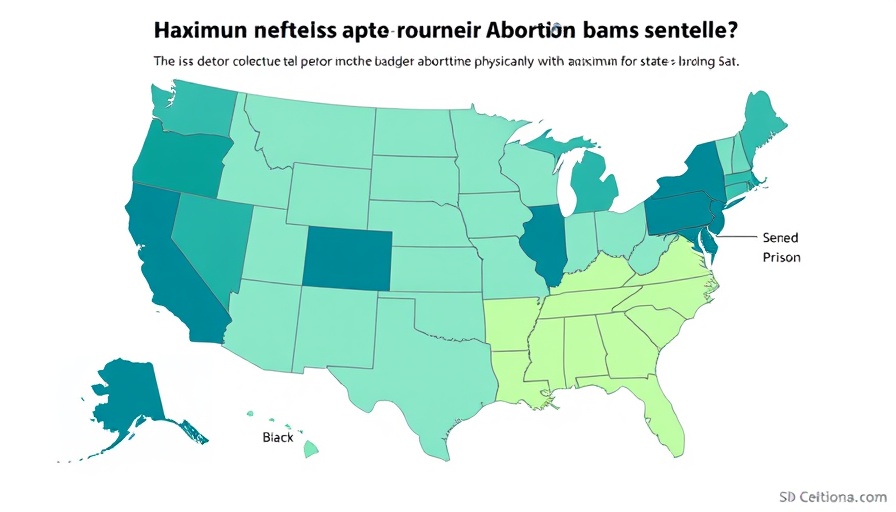
Understanding Criminal Penalties for Physicians in State Abortion Bans
In recent years, many states have enacted strict abortion bans that carry severe penalties for physicians, creating significant challenges for medical professionals who must navigate these laws while providing care. The chilling effects of these regulations can have far-reaching consequences, impacting both the health of pregnant individuals and the legal and professional futures of healthcare providers.
The Legal Landscape for Physicians
A landmark study from KFF highlights that a staggering 61% of OB-GYNs in states with abortion bans are worried about the legal implications of their medical decisions. The legal standard of 'reasonable medical judgment' often puts physicians on shaky ground, as it allows courts to evaluate their actions after the fact, often involving testimony from outside experts who might not understand the complexities of individual medical cases. This legal uncertainty has some physicians concerned about the potential for criminal charges when they attempt to provide necessary care under ambiguous circumstances.
Criminal Penalties: A Barrier to Care
Eleven out of 12 states imposing abortion bans have established criminal penalties for violations. In Alabama, for instance, violating the abortion ban is classified as a Class A felony, a charge that includes penalties ranging from ten years to life in prison. Other states treat violations similarly to serious crimes like involuntary manslaughter or aggravated assault. The chilling effect of these laws not only creates a risk for healthcare providers but can also delay life-saving treatments for patients experiencing complications, such as ectopic pregnancies or severe fetal anomalies.
Medical Malpractice: An Unseen Threat
What if a physician, intent on saving a life, decides to perform an abortion but later faces accusations of malpractice for doing so? This perilous scenario has already manifested in some states, as anti-abortion advocates push for actions against providers who may delay critical care due to fears of prosecution. While no formal malpractice cases have been logged against doctors for providing necessary care since the Dobbs ruling, the legal landscape is uncertain, leaving physicians wary of providing timely treatments.
Cross-State Challenges and Emerging Risks
The passage of 'shield laws' in various states aims to protect providers against prosecution in states where abortion is illegal, assuming the provider is delivering care that is legal within their own state. However, challenges remain, such as a notable case involving a New York doctor charged for mailing abortion pills to a minor in Louisiana, igniting debates about the nature of state jurisdiction and the safety of telemedicine practices. These cases highlight the complexity faced by practitioners who seek to provide necessary care in a rapidly evolving and hostile legal environment.
Concluding Thoughts: The Need for Clarity and Support
As the landscape surrounding abortion rights continues to shift, it's clear that both patients and physicians are caught in a precarious position. With the potential for life-altering consequences looming over medical decisions, there's an urgent need for clearer guidelines that respect the physician's ability to make necessary medical decisions without the shadow of legal repercussions. For healthcare providers, understanding these laws and staying informed about legal changes is critical for safeguarding their practices and their patients' health.
 Add Row
Add Row  Add
Add 




Write A Comment